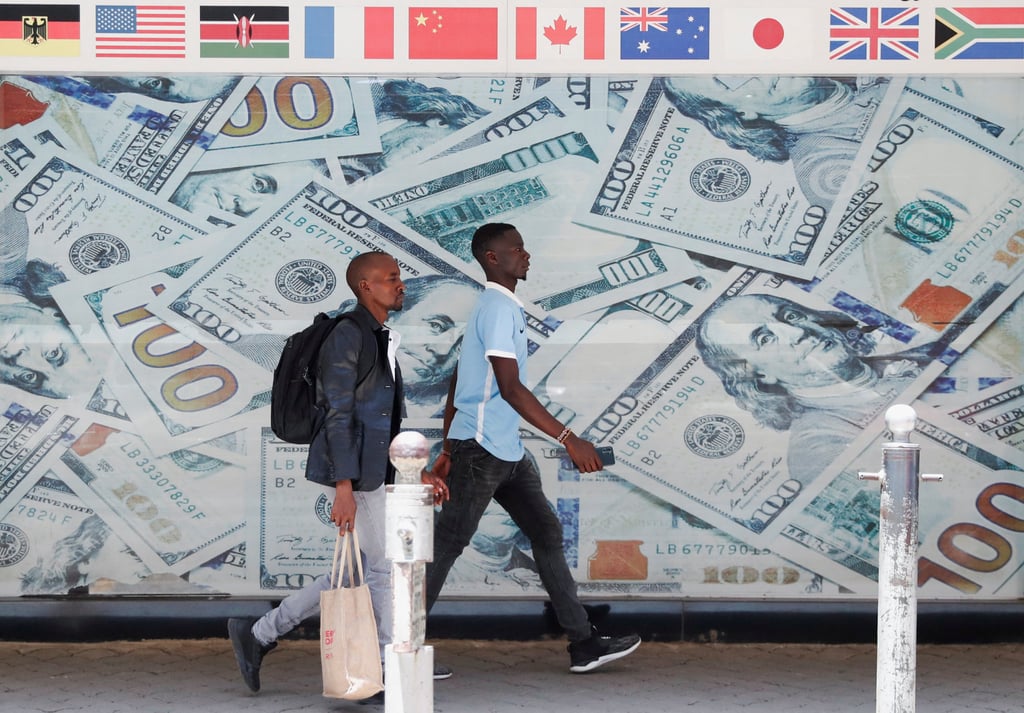A careful examination of the dollar from the perspective of currency's four basic functions, namely world currency, stores of value, payment and circulation, reveals a startling reality.
From "dollar privilege" to "global enemy"
The US dollar is being pulled into a crisis of trust by its very own mastermind. Bert Flossbach, co-founder and chief investment officer of Germany's largest independent asset management firm, Flossbach von Storch, said: "The US government's chaotic tariff policy has undermined the dollar's safe haven status."
At the heart of the dollar's fall is America's weaponization of its financial system. Since the outbreak of the Ukraine crisis, Western countries froze $300 billion in Russian reserves and expelled Russia financial institutions from the SWIFT system. These drastic measures, intended to crush adversaries, instead triggered a mass exodus from the dollar.
Many countries have accelerated efforts to de-dollarize. Even Saudi Arabia, long the guardian of the oil-dollar nexus, has started accepting other currencies for oil transactions.
In one fell swoop, the very weapon the US used to maintain its financial dominance has turned into its Achilles' heel, splintering the global financial system and hastening the decline of the dollar.
From "safe assets" to "devaluation traps"
The US dollar's stability once rested on two pillars: a robust US economy and the nation's unwavering commitment to its credit. But today, both foundations are crumbling. The US national debt has soared past $36 trillion, with debt-to-GDP ratios hitting nearly 120 percent. The Federal Reserve's response has been to print more money, fueling inflation while simultaneously weakening the dollar.
The consequences are already evident. Countries that once trusted US debt now find themselves trapped in US dollar devaluation, even traditional allies like Japan and Saudi Arabia are offloading their stakes in American debt. Worse yet, the exportation of US inflation to emerging economies, through the "dollar tidal wave" has pushed countries like Argentina and Egypt to the brink of financial bankruptcy, igniting a worldwide movement away from dollar-based reserves.
In short, the American currency has become a ticking time bomb and a "devaluation trap" rather than a safe store of value.
From "everywhere" to "restricted"
The dollar's omnipresence in global trade is retreating. America's control over the SWIFT payment system, once a crucial artery for cross-border transactions, is not as reliable as it once was. Alternatives have emerged: China's CIPS system, Russia's SPFS and the EU's INSTEX are facilitating cross-border transactions without relying on US dollars.
The most significant blow, however, may come from the "petrodollar" system. For decades, oil trading has been anchored in US dollars, cementing its dominance. But countries like Iran, Venezuela, and even the UAE are shifting toward the acceptance of other currencies for oil transactions. This transformation could be the death knell for the dollar's privileged position in the global economy.
On top of this, the rise of central bank digital currencies (CBDCs) is set to further undermine the dollar's supremacy. As countries develop their own digital currencies and enter into cross-border alliances, the dollar's role as the global middleman in trade could be rendered obsolete sooner or later.
America's self-inflicted wounds
While Washington may feel emboldened by its ability to weaponize the financial system, the consequences will ultimately be self-destructive. For one thing, the erosion of trust in US debt will raise borrowing costs for the federal government, exacerbating the already crippling national debt. Secondly, the decline of the dollar as the world's reserve currency will shrink US income from "seigniorage," the revenue generated by printing money.
For another, as the dollar's dominance erodes, America's geopolitical influence will fade. The loss of its financial leverage means that Washington's ability to impose sanctions or exert pressure on nations will diminish, weakening its role as the global leader.
The message is clear: The world no longer wants a single currency, particularly one that is the symbol of hegemony and is increasingly wielded as a tool of coercion.
The future belongs to a more diversified monetary system: where multiple currencies, including the euro, Chinese yuan, and potentially even gold or digital currencies, will all play a larger role. This shift may be uncomfortable for America, but it is in line with the trend of history.
The dollar's downfall should be a wake-up call for the US. If Washington continues down its current path, it risks turning itself into an isolated financial island, cut off from the very system it once cultivated and ruled.
The time has come for America to take a more collaborative, less confrontational approach, or risk witnessing its global influence slip away.
The author is a commentator on international affairs, writing regularly for Xinhua News, Global Times, China Daily, CGTN etc. opinion@globaltimes.com.cn







